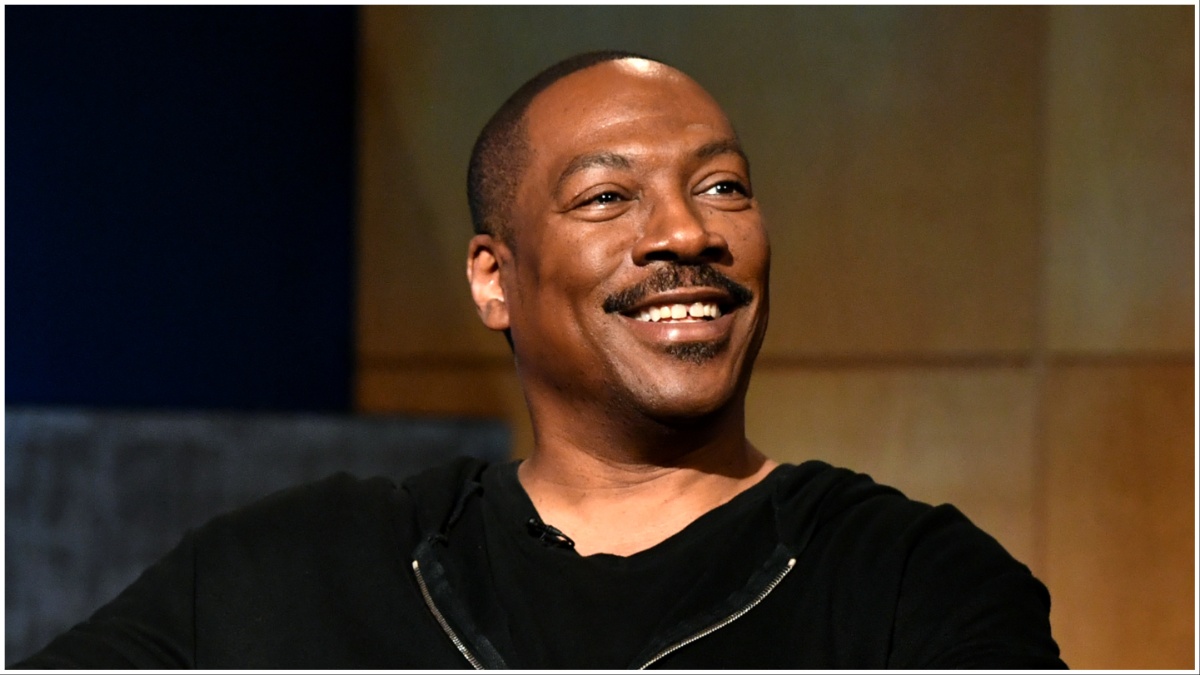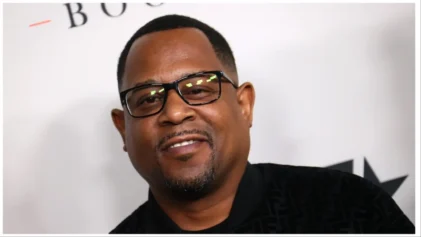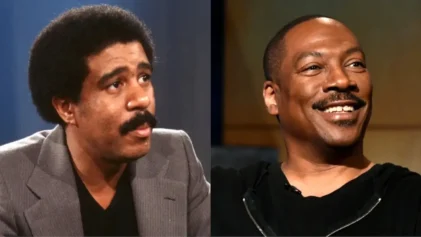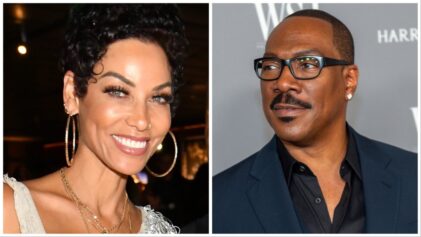Comedian Eddie Murphy has long challenged this dynamic. In the 1980s, he transitioned from stand-up to big-budget mainstream films, and in the 1990s, he made waves as a writer for the hit movie “Boomerang.”
In a recently resurfaced 1992 clip from “The Tonight Show with Jay Leno,” Murphy discussed the backlash he faced for writing and starring in a film where Black actors played executives rather than gangsters or drug dealers.

Murphy said, “The coolest thing about ‘Boomerang’ and the most political thing about ‘Boomerang’ is that it’s a movement. All Black cast and it has nothing to do with being Black or nothing. Just people.”
Leno added, “To me, any good movie when you become the person in the movie.”
The film featured Halle Berry, Martin Lawrence, David Alan Grier, Grace Jones, Chris Rock, Lela Rochon, late actors, Geoffrey Holder, John Witherspoon, Earth Kitt, and even Tisha Campbell to name a few.
Leno then read from a review from the Los Angeles Times, which stated, “The most intriguing aspect of “Boomerang” turns out to be not its story but its racial composition, for this film takes pains to create a reverse world from which white people are invisible except when comic relief is called for.”
It continued, “Aside from an insipid waitress, a bumbling racist store clerk and four beefy young slaves (the credits coyly lists them as escorts) who are enthusiastically whipped by Strange as they pull her chariot through New York’s World Financial Center (don’t ask), the only pale American face prominently visible belongs to Capt. James Kirk of the Starship Enterprise, eulogized by Marcus as “the coolest white man on the planet.”
Murphy responded, “This cat at the L.A. Times is tripping because there were, well there are white people in the movie but there are no white leads in it. You take a picture like ‘Boys in the Hood,’ no one tripped about that because it was a movie that dealt with a violent thing. But a regular thing and it was business, and people asked, ‘Where are the white people? Who’s running that office?’”
The “Shrek” creator emphasized that he doesn’t take such criticism personally. Leno called it a “cultural bias” from white people unaccustomed to seeing Black success.
“You better get used to it,” Murphy said. “Cause I ain’t going no place.”
BlexMedia posted the clip from the interview on Instagram, prompting many of the outlet’s 177,000 followers to express disbelief and respect for Murphy’s career.
One person commented, “WE CAN PLAY A GANGSTER AND A MURDERER BUT NOT A CORPORATE BUSINESS MAN THAT HANGS WITH HIS SUCCESSFUL BLACK COLLEAGUES.”
Another wrote, “They were mad it wasn’t a slave movie.”
A third person shared how “Boomerang” inspired them to attend a graduate school to become an executive, like the character Jacqueline Broyer, a high-powered executive at the advertising firm at the center of the film.
“Listen… Boomerang changed my whole life,” she said. “I went to a top Business school so I could be an Executive like Robin Givens portrayed I hadn’t seen anyone like her at the time.”
When Eddie Murphy had to explain to Jay Leno back in 1992, that Black people were more than the stereotypical images that are constantly pumped out to the world. The movie "Boomerang" showed successful Black people dealing with everyday life. Wow, what a concept! pic.twitter.com/EcDDdwOrfa
— Nicole's View(@BLKLiberation84) June 23, 2024
Another comment highlighted Murphy’s impact on Hollywood, stating, “Eddie Murphy has BEEN putting black artists on camera in an all black film. Coming to America. Harlem Nights. Boomerang.”
The fan continued, “Then Hollyweird started b—ching up his plans. I’m sure he wanted an all black cast for The Nutty Professor films, etc. but it seems like he is working on another big production with all black comedians for 2025.. he said this in an interview.”
A few fans noted that “Boomerang,” along with “Strictly Business,” also starring Halle Berry, are among the first few films to show Black people in executive roles.
“So ironic that white people can see a movie with only black people in it and criticise it for that but when black people have the same issue with all white spaces….‘why you got to make everything about race,’” said another observer.
Fast-forward to 2024 … and this idea of what jobs Black people are supposed to have is still a thing.
Biden addressed Trump’s use of the phrase during his NAACP speech on July 16 at their national convention in Las Vegas, condemning Trump’s claim that illegal migrants were taking “Black jobs” and “Hispanic jobs” from Americans.
“Folks, I know what the hell a ‘Black job’ is — it’s the vice president of the United States,” Biden said to loud cheers, referring to Vice President Kamala Harris. “I know what a ‘Black job’ is. The first Black president in American history, Barack Obama.”
The 46th president also highlighted his nomination of the first Black woman to the Supreme Court, Ketanji Brown Jackson, and his commitment to ensuring his administration reflected the diversity of America, contrasting with Trump’s predominantly white and male cabinet.


